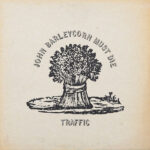Pope John XXIII, often affectionately known as the “Good Pope,” remains one of the most impactful figures of the 20th century, not just within the Catholic Church, but on the world stage. Born Angelo Giuseppe Roncalli on November 25, 1881, his papacy, though relatively brief, ushered in an era of significant change and reform. What was remarkable about Pope John XXIII was his perceived “ordinariness,” a quality that made his profound influence all the more extraordinary.
Growing up in Sotto il Monte, near Bergamo in northern Italy, Angelo Roncalli was deeply rooted in his farming family background. This humble beginning shaped his character and approach to life, even as he ascended the ranks of the Catholic Church. He pursued his early religious studies at Bergamo’s diocesan seminary and became a member of the Secular Franciscan Order, embracing a life of simplicity and service. Ordained in 1904, Father Roncalli continued his studies in canon law in Rome. Upon his return, he served as secretary to the bishop of Bergamo, taught Church history at the local seminary, and took on the role of publisher for the diocesan newspaper, gaining diverse experiences within the Church administration.
His life took a dramatic turn with World War I, where he served as a stretcher-bearer for the Italian army. This firsthand experience of the horrors of war profoundly impacted him, providing a stark understanding of human suffering and the urgent need for peace. In 1921, Father Roncalli was appointed national director for Italy of the Society for the Propagation of the Faith, further expanding his responsibilities within the Church. He also dedicated time to academia, teaching patristics at a seminary in Rome, demonstrating his commitment to both pastoral work and theological scholarship.
In 1925, a new chapter began as he transitioned into papal diplomacy. Appointed as a papal diplomat, he first served in Bulgaria, followed by postings in Turkey and then France. His time in these diverse regions broadened his understanding of the world and different cultures. During World War II, while serving in Turkey, Archbishop Roncalli played a crucial humanitarian role. He developed strong relationships with Orthodox Church leaders and, significantly, worked with the German ambassador to Turkey to aid Jewish people fleeing Nazi persecution. It is estimated that his efforts helped save approximately 24,000 Jewish lives, showcasing his courage and compassion in the face of immense danger.
His diplomatic service culminated in his appointment as a cardinal and Patriarch of Venice in 1953. Finally becoming a residential bishop, Cardinal Roncalli was able to directly minister to a diocese. Then, in 1958, at the age of 76, Cardinal Roncalli was unexpectedly elected pope, taking the name John XXIII. He chose the name in honor of his father and the two patron saints of Rome’s cathedral, St. John Lateran, reflecting his deep connection to his roots and the traditions of the Church.
Pope John XXIII quickly became known for his warmth, wit, and approachable nature. He took his papal responsibilities with utmost seriousness but maintained a humble perspective about himself. His sense of humor became legendary, and he broke with tradition by engaging directly with political and religious leaders from around the globe, fostering dialogue and understanding. In 1962, he played a significant role in seeking peaceful resolution during the tense Cuban missile crisis, demonstrating his commitment to global peace and diplomacy.
His papacy is most notably remembered for the Second Vatican Council, which he convened in 1962. In his opening address, Pope John XXIII challenged the “prophets of doom” who saw only negativity in the modern world. He set a new direction for the Church, advocating for a pastoral approach rooted in mercy and understanding rather than condemnation. He famously stated, “The Church has always opposed… errors. Nowadays, however, the Spouse of Christ prefers to make use of the medicine of mercy rather than that of severity.” This spirit of renewal and openness permeated the Council, leading to profound changes in the Catholic Church’s relationship with the modern world and other Christian denominations.
Among his significant contributions are his encyclicals Mater et Magistra (“Mother and Teacher”) in 1961 and Pacem in Terris (“Peace on Earth”) in 1963. Mater et Magistra addressed social justice issues in the modern era, while Pacem in Terris, issued during the height of the Cold War, was a powerful call for peace and human rights, addressed not only to Catholics but to all people of goodwill. Pope John XXIII also broadened the College of Cardinals, making it more international and representative of the global Church.
On his deathbed in 1963, Pope John XXIII offered a profound reflection on his life and papacy: “It is not that the gospel has changed; it is that we have begun to understand it better.” He emphasized the importance of interpreting the Gospel in light of changing times and cultures, a principle that guided his approach to the Church’s renewal. Pope John XXIII, the “Good Pope,” passed away on June 3, 1963, leaving behind a legacy of humility, wisdom, and a renewed Church. He was beatified by Pope John Paul II in 2000 and canonized as a saint by Pope Francis in 2014, solidifying his place as Saint John XXIII in the history of the Catholic Church. His tomb in St. Peter’s Basilica remains a place of pilgrimage and reflection, a testament to the enduring impact of this humble and transformative pope.
Learn more about Pope John XXIII!

